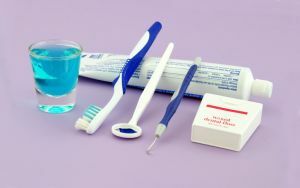 Modern dental implantation is a complex, multi-stage process that requires careful attention from both the specialist and the patient.
Modern dental implantation is a complex, multi-stage process that requires careful attention from both the specialist and the patient.
To reduce the risk of various complications and rejection of implants, as well as to extend the life of the implants, it is recommended that the prescriptions of the treating physician be strictly followed.
It is important to carry out such measures immediately after the implantation of teeth, because it is in the post-operative period that the mucosa becomes vulnerable to various infections.
Contents
- Possible complications, consequences and complexities
- Rehabilitation period
- MRI during postoperative period
- Special features of nutrition after operation
- Care of oral cavity and implants
Possible complications, consequences and complexities of
After the operation of installing dental implants, various types of complications can develop:
- Appearance of pain sensation field of intervention .A normal phenomenon is the appearance of minor pain immediately
 after the installation of implants. Usually, this phenomenon is observed immediately after the end of the anesthesia and lasts for several days. After the operation, the doctor appoints the patient to take medications that have an analgesic effect on the body. In the event that the pain lasts much longer, it can be a signal for the development of the inflammatory process in soft tissues or for damage to the nerve.
after the installation of implants. Usually, this phenomenon is observed immediately after the end of the anesthesia and lasts for several days. After the operation, the doctor appoints the patient to take medications that have an analgesic effect on the body. In the event that the pain lasts much longer, it can be a signal for the development of the inflammatory process in soft tissues or for damage to the nerve. - The natural reactions of the body to the surgical intervention is considered to be edema of the tissue at the site of tooth implantation. Usually it occurs a few hours after surgery and can persist for 5-7 days. In the event that the swelling of the tissues persist for more than 7-10 days, this indicates the development of inflammation in the soft tissues of the oral cavity.
- After surgery, patients usually experience slight bleeding of from the tissue, which is considered normal. Gums can bleed for more than 7-10 days, which causes the formation of a hematoma. In the event that the patient develops severe bleeding already on the first day after the operation, then this may be a sign of trauma to the blood vessels of the circulatory system.
- One of the reactions of the body to established prostheses is the body temperature rise .In the event that the temperature of the
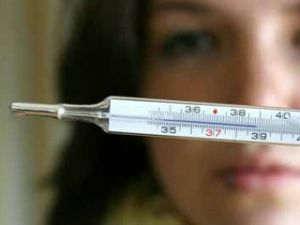 rises to 37 degrees, then you should not worry. This is considered normal after surgical intervention. Preservation of fever over 37 degrees during 4-5 days and the appearance of purulent discharge in the place of installation of the dental implant indicates that the inflammatory process in the oral cavity began.
rises to 37 degrees, then you should not worry. This is considered normal after surgical intervention. Preservation of fever over 37 degrees during 4-5 days and the appearance of purulent discharge in the place of installation of the dental implant indicates that the inflammatory process in the oral cavity began. - During the implantation, synthetic threads are used that help to keep the soft tissues well and prevent divergence of the joints. After the operation, it is recommended to periodically inspect the oral cavity and monitor the integrity of the joints. In the event that the has a discrepancy between , this may indicate mechanical damage or the onset of an inflammatory process.
- Possible development of complications during the engraftment of the implant , that is, when the surface of the new tooth is coalescing with the bone of the tooth. Often during this period, a specialist diagnoses the development of the inflammatory process in the tissues that surround the prosthesis. This can occur as a result of infection in the area between the gum and the prosthesis.
- In addition, it is possible rejection of the prosthesis , which develops due to infectious processes, smoking and lack of bone tissue.
Rehabilitation period
Dental implant surgery can cause various complications, therefore the following recommendations should be observed in the first two weeks after dental implantation:
- The first time you can eat only 2 hours after the operation, and the food should be a soft and semi-liquid consistency of .
- When applying seams to one side of the , it is recommended to chew the food with the other side of the teeth.
- The temporary prosthesis should not exert pressure on the seams of the .In the event that this happens, then it is necessary to remove it.
- Throughout the rehabilitation period, the dental paste
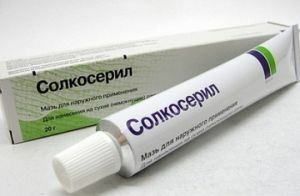 Solcoseryl is applied to the place of application of the joints before eating .
Solcoseryl is applied to the place of application of the joints before eating .
- In the first two weeks after the operation, is recommended to take any medications that contain calcium .
After the operation, it is possible to develop bleeding tissues, swelling and bruising. It is for this reason that in the first two days it is recommended to apply cold to the operated tissue site for 5-10 minutes and repeat the procedure in 20-30 minutes.
MRI in the postoperative period
One of the highly effective methods of investigation is MRI, the scope of which is quite diverse. This procedure is assigned to the examination of teeth and jaws in order to clarify the diagnosis and justify the need for an operative intervention. MRI is assigned to study the condition of soft tissues and cartilage, but not bones.
When appointing an MRI for many patients with established prostheses, the issue of the possibility of tissue damage in the oral cavity, as well as implants when exposed to a magnetic field, is of concern.
In fact, this opinion is erroneous for the following reasons:
- modern dental structures are made of special alloys that do not react with a magnetic field;
- in the presence of ferromagnets in the implants they do not shift and do not get heated at all.
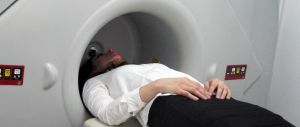 The only disadvantage of MRI in the presence of dental implants is the possibility of distortion of the results.
The only disadvantage of MRI in the presence of dental implants is the possibility of distortion of the results.
Before prescribing and performing the procedure it is necessary to inform the specialist about the presence of prostheses in the oral cavity, which will allow changing the settings of the device for obtaining high-quality images.
Power features after operation
After performing a surgical procedure for implantation of teeth it is recommended to change your habitual way of life and first of all pay attention to your food.
Specialists recommend to refuse after operation from eating food and hot drinks until the anesthesia has ended. This is due to the fact that a mucosal burn or gum injury may occur, which will require a long recovery.
In the first days after the operation, coffee should be discarded, as it causes an increase in pressure, and can provoke bleeding.
Implantation of teeth causes bone trauma, therefore it is recommended to use foods with high calcium content for its fast recovery and strengthening. It is necessary to give preference to sour-milk products, and also to refuse from the use of rough food.
The ideal dishes after the operation are:
- puree;
- broth;
- mashed dishes.
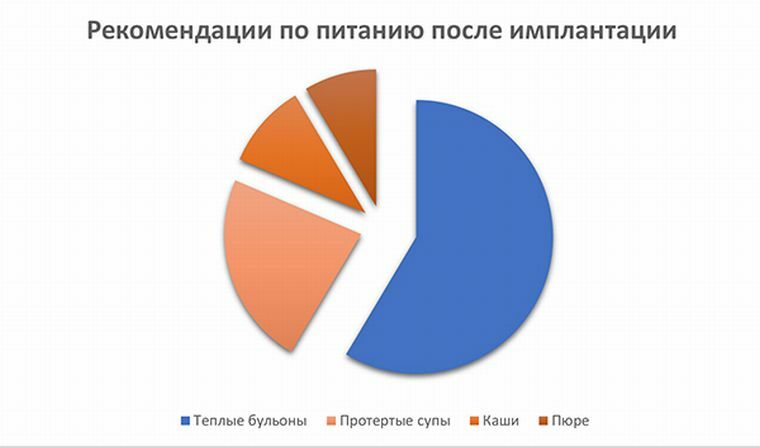
Until the wound is fully healed, avoid ingestion of food in the well, so chew food on the opposite side. In the event that this still happened, it is recommended to rinse the mouth with warm water or a decoction of chamomile.
Care of the oral cavity and implants
In order to prevent the development of postoperative complications, it is necessary to properly care for the oral cavity. If the 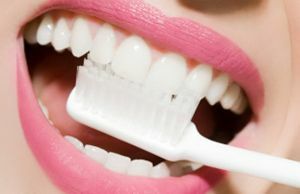 complies with all the recommendations of the attending physician, it is possible to prolong the life of the implanted tooth much more.
complies with all the recommendations of the attending physician, it is possible to prolong the life of the implanted tooth much more.
In the early postoperative period, it is necessary to take antibacterial drugs and anesthetics prescribed by a specialist, and also to follow a certain diet.
During this period, the mucosa is too vulnerable, therefore, the maintenance of the installed prosthesis is carried out with the aid of a toothbrush with soft bristles.
It is important to clean teeth gently several times a day, avoiding injury to the joints. After cleaning the implants, it is recommended to rinse the mouth with an antiseptic solution.
With improper care of the oral cavity, the accumulation and multiplication of pathogenic microorganisms occurs, which can cause damage to the health of neighboring teeth, and reduce the life of implants.
Details on how to care for dental implants:
Dentures can be cleaned using:
- flosses;
- brushes;
- irrigators.
Care of the design involves cleaning only the protruding part above the gum implant, as well as its lower part. In addition, a good result is the use of the irrigator, which helps maintain the purity of the oral cavity at a high level.
Today, implantation is one of the popular procedures that helps a person to regain his attractive appearance and not give up his usual food. It is necessary to approach the operation very responsibly and this will help prevent the development of various complications during the rehabilitation period.
